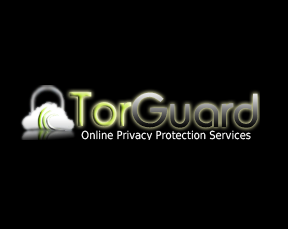The Verge published a great article a few days ago with video of a guy visually showing you the difference in speeds both using a VPN, and when your not using a VPN. If you are unfamiliar with what a VPN is, it is basically this:
There are loads of benefits to having a VPN. One is protecting your IP address. Your IP address is your digital footprint and personal identifier. When using a VPN, you can hide this information from websites you visit. If you live in a country that regulates internet usage by forcing censorship with firewalls, stealth vpn can free you from that nonsense. VPN can also hide your activity from big brother. Its your business, keep it that way.
Lets get back to that article I was referring to. All of the ISP’s are messing with streaming services, and no matter how much you bitch, there isn’t anything you can do. Or is there? When using a VPN, your ISP doesn’t know that your watching Netflix. If it doesn’t know, it can’t throttle you. Some bloggers may argue that there is no difference, but I disagree. A writer on Verge also subscribed to this theory. Watch this experiment:
I have seen the same results from personal experiences. Those who argue this theory, also make mention of low quality or free vpn services which are no good. If you are going to go with a vpn, I highly suggest using Torguard. Torguard offers a few different products, all very useful depending on what you’re looking for. I currently have a vpn through them, along with a torrent proxy. The speeds are fantastic, and I have had nothing but good luck with them. I have used STRONGVPN as well, but cancelled. The service was decent, but they were expensive and made it difficult to switch locations by tacking on all sorts of charges. Torguard makes it easy.
There is one more thing you may want to do when considering a VPN company to go with. Torrentfreak wrote an article this year called “Which VPN Services Take Your Anonymity Seriously? 2014 Edition.” They contacted loads of VPN providers asking them their policy on “logs.” Basically the only evidence possible that can be used against you when using a VPN. Torrentfreak asked the following questions to these providers:
1. Do you keep ANY logs which would allow you to match an IP-address and a time stamp to a user of your service? If so, exactly what information do you hold and for how long?
2. Under what jurisdictions does your company operate and under what exact circumstances will you share the information you hold with a 3rd party?
3. What tools are used to monitor and mitigate abuse of your service?
4. In the event you receive a DMCA takedown notice or European equivalent, how are these handled?
5. What steps are taken when a valid court order requires your company to identify an active user of your service?
6. Is BitTorrent and other file-sharing traffic allowed on all servers? If not, why?
7. Which payment systems do you use and how are these linked to individual user accounts?
8. What is the most secure VPN connection and encryption algorithm you would recommend to your users?
Torguard answered the questions if great detail.
1. TorGuard does not store any IP address or time stamps on any VPN and proxy servers, not even for a second. Further, we do not store any logs or time stamps on user authentication servers connected to the VPN. In this way it is not even possible to match an external time stamp to a user that was simultaneously logged in. Because the VPN servers utilize a shared IP configuration, there can be hundreds of users sharing the same IP at any given moment further obfuscating the ability to single out any specific user on the network.
2. TorGuard is a privately owned company with parent ownership based in Nevis and our headquarters currently located in the US. Our legal representation at the moment is comfortable with the current corporate structuring however we wouldn’t hesitate to move all operations internationally should the ground shift beneath our feet. We now offer VPN access in 23+ countries worldwide and maintain all customer billing servers well outside US borders.
We would only be forced to communicate with a third-party in the event that our legal team received a court ordered subpoena to do so. This has yet to happen, however if it did we would proceed with complete transparency and further explain the nature of TorGuard’s shared VPN configuration. We have no logs to investigate, and thus no information to share.
3. Our network team uses commercial monitoring software with custom scripts to keep an eye on individual server load and service status/uptime so we can identify problems as fast as possible. If abuse reports are received from an upstream provider, we block it by employing various levels of filtering and global firewall rules to large clusters of servers. Instead of back tracing abuse by logging, our team mitigates things in real-time. We have a responsibility to provide fast, abuse-free VPN services for our clients and have perfected these methods over time.
4. In the event of receiving a DMCA notice, the request is immediately processed by our abuse team. Because it is impossible for us to locate which user on the server is actually responsible for the violation, we temporarily block the infringing server and apply global rules depending on the nature of the content and the server responsible. The system we use for filtering certain content is similar to keyword blocking but with much more accuracy. This ensures the content in question to no longer pass through the server and satisfies requirements from our bandwidth providers.
5. Due to the nature of shared VPN services and how our network is configured, it is not technically possible to effectively identity or single out one active user from a single IP address. If our legal department received a valid subpoena, we would proceed with complete transparency from day one. Our team is prepared to defend our client’s right to privacy to the fullest extent of the law.
6. BitTorrent is only allowed on select server locations. TorGuard now offers a variety of protocols like http/socks proxies, OpenVPN, SSH Tunnels, SSTP VPN and Stealth VPN (DPI Bypass), with each connection method serving a very specific purpose for usage. Since BitTorrent is largely bandwidth intensive, we do not encourage torrent usage on all servers. Locations that are optimized for torrent traffic include endpoints in: Canada, Netherlands, Iceland, Sweden, Romania, Russia and select servers in Hong Kong. This is a wide range of locations that works efficiently regardless of the continent you are trying to torrent from.
7. We currently accept payments through all forms of credit or debit card, PayPal, OKPAY, and Bitcoin. During checkout we may ask the user to verify a billing phone and address but this is simply to prevent credit card fraud, spammers, and keep the network running fast and clean. After payment it is possible to change this to something generic that offers more privacy. No VPN or Proxy usage can be linked back to a billing account due to the fact we hold absolutely no levels of logging on any one of our servers, not even timestamps!
8. For best security we advise clients to choose OpenVPN connections only, and if higher encryption is called for use AES256 bit. This option is available on many locations and offers excellent security without degrading performance. For those that are looking to defeat Deep Packet Inspection firewalls (DPI) like what is encountered in countries such as China or Iran, TorGuard offers “Stealth” VPN connections in the Netherlands, UK and Canada. Stealth connections feature OpenVPN obfuscation technology that causes VPN traffic to appear as regular connections, allowing VPN access even behind the most strict corporate wifi networks or government regulated ISPs.
The complete article can be read here. StrongVPN gave an evasive answer at first which made me not want to use them.
I’m going to continue this series throughout the month, sharing how to configure a router for your home to be permanently connected to a VPN, how to set up a torrent proxy with uTorrent, and how to take almost any router and flash it with DDWRT which will allow it to be permanently connected to VPN.








